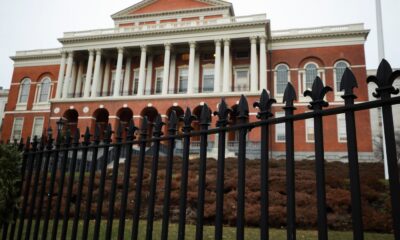Entertainment
Bad Bunny’s Super Bowl Halftime Show Sparks Polarized Reactions

The announcement that Bad Bunny will perform at the 2026 Super Bowl halftime show has ignited a heated debate across the United States. This historic performance will mark the first time a halftime show is conducted entirely in Spanish, a milestone that has drawn both fervent support and significant backlash.
Following the announcement from the NFL, Roc Nation, and Apple Music, fans of Bad Bunny celebrated what they view as a revolutionary moment in music. The Puerto Rican artist has enjoyed a remarkable year, highlighted by a record-breaking 31-date residency in Puerto Rico and the success of his album Debí Tirar Más Fotos.
Conversely, the reaction from conservative commentators has been overwhelmingly negative. Critics have expressed disdain for Bad Bunny’s music, political views, and the use of Spanish in his lyrics. Greg Kelly, a host on Newsmax, called for a boycott of the NFL, claiming that Bad Bunny “hates America” and is “a terrible person.” Such statements reflect a broader trend of hostility towards Latin artists in mainstream American culture.
The involvement of political figures has further intensified the situation. Kristi Noem, the Secretary of Homeland Security, implied that immigration enforcement would be present at the Super Bowl. Former President Donald Trump also weighed in, expressing confusion over Bad Bunny’s selection as a performer and calling the decision “absolutely ridiculous.”
Historical Context of Latin Artists in America
The backlash against Bad Bunny is not an isolated incident but rather part of a longstanding tradition of sidelining Latin artists in the U.S. music industry. Historical examples abound, such as José Feliciano, who faced severe criticism for his Latin-influenced rendition of “The Star-Spangled Banner” at the 1968 World Series. Feliciano’s performance provoked outrage, with many viewers mistaking his artistic expression for a protest, leading to hate mail and calls for his deportation, despite being a U.S. citizen born in Puerto Rico.
In a similar vein, Ricky Martin encountered resistance when he aimed to perform at the Grammy Awards in 1999. Despite his undeniable popularity, producers were hesitant to feature a Latin artist singing primarily in Spanish. After considerable advocacy from his label head, Martin ultimately took the stage, which proved pivotal in changing perceptions about Latin music.
These historical precedents illustrate the ongoing struggle that Latin artists face in gaining acceptance and recognition in mainstream American culture.
Contemporary Challenges and Significance
Currently, Bad Bunny’s rise occurs against a backdrop of increasing anti-Latino sentiment in the U.S. government and society. The current administration has implemented policies perceived as hostile towards immigrant communities. This context makes Bad Bunny’s performance at the Super Bowl not just an entertainment milestone but also a significant cultural statement.
Critics often react negatively simply based on language, with many equating Spanish with being un-American. This was evident when singer Nezza was told she could not perform the national anthem in Spanish at a Dodgers game, despite historical precedent supporting such performances.
In light of this history, Bad Bunny’s decision to perform in Spanish during the Super Bowl will resonate deeply with many. It will symbolize representation for the large Latino community in the U.S., which comprises around 20 percent of the population.
As the February performance approaches, it is clear that Bad Bunny’s presence on such a significant platform will be more than an entertainment spectacle; it will be a powerful act of self-expression and cultural pride. His performance, steeped in both personal and historical significance, promises to challenge the prevailing narratives surrounding Latin music and its artists in America.
-

 Science1 week ago
Science1 week agoResearchers Challenge 200-Year-Old Physics Principle with Atomic Engines
-

 Politics1 week ago
Politics1 week agoNHP Foundation Secures Land for 158 Affordable Apartments in Denver
-

 Health1 week ago
Health1 week agoNeuroscientist Advocates for Flag Football Until Age 14
-

 Lifestyle1 week ago
Lifestyle1 week agoLongtime Friends Face Heartbreak After Loss and Isolation
-

 Health1 week ago
Health1 week agoFDA Launches Fast-Track Review for Nine Innovative Therapies
-

 Politics1 week ago
Politics1 week agoIsraeli Air Strikes in Lebanon Kill One, Wound Seven Amid Tensions
-

 World1 week ago
World1 week agoTroops to Enjoy Buffalo Chicken, Thai Curry in 2026 MREs
-

 Business1 week ago
Business1 week agoMaine Housing Inventory Surges to Post-Pandemic High
-

 World1 week ago
World1 week agoGlobal Military Spending: Air Forces Ranked by Budget and Capability
-

 Politics1 week ago
Politics1 week agoMassachusetts Lawmakers Resist Audit After Voter Mandate
-

 Top Stories1 week ago
Top Stories1 week agoUnforgettable Moments: The Best Victoria’s Secret Performances
-

 Business1 week ago
Business1 week agoSpirit Airlines Cuts Workforce with Furloughs for 365 Pilots









